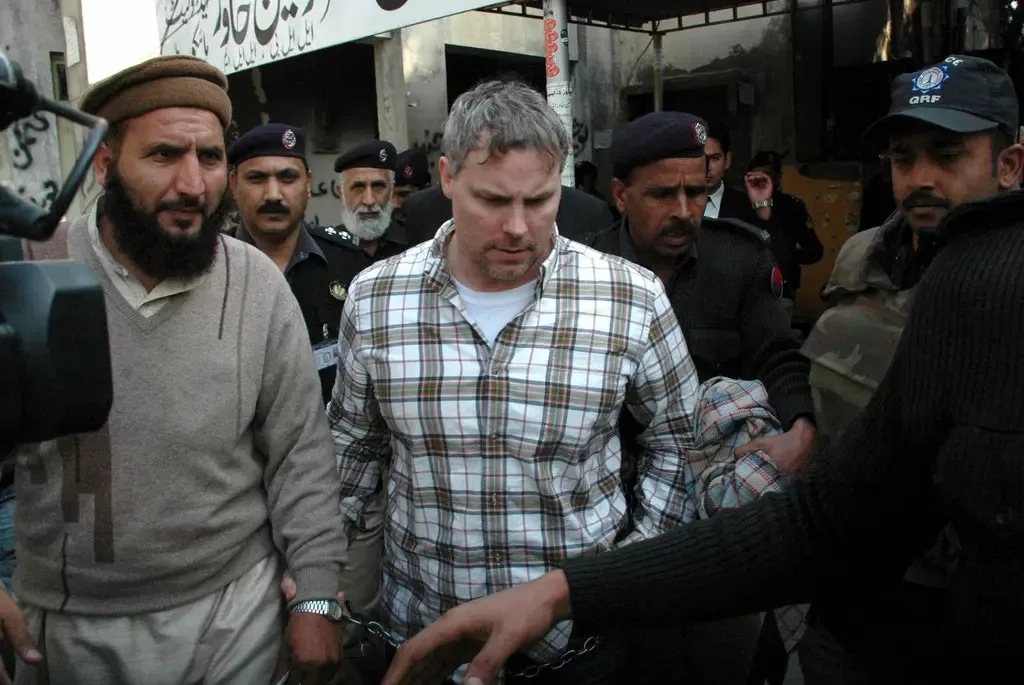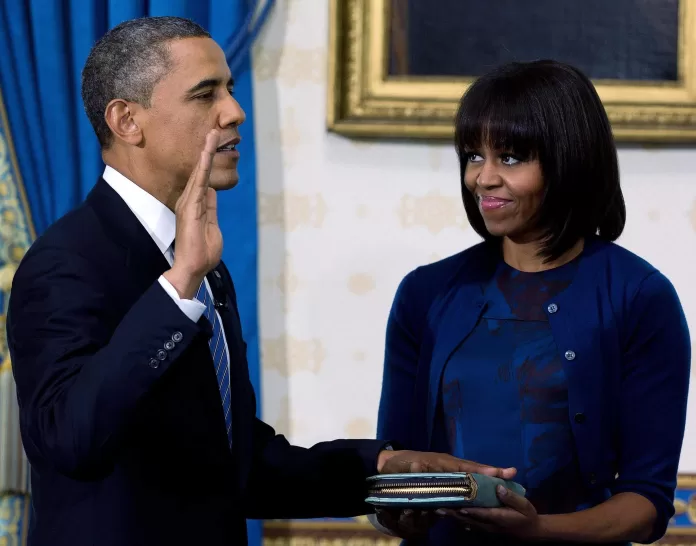American presidential elections have always been the victim of dichotomy. It is won and lost on the basis of domestic agenda. But, on the contrary, the elected president’s legacy is shaped by foreign and defense policies that he forms in the next four years. Same is the case with Obama’s second term. He has won the 2012 elections in the name of healthcare, reducing deficit, a comprehensive overhaul of US immigration laws, package of gun control laws, climate change legislation. However, this presidency will be remembered for the withdrawal of the US troops from Afghanistan in 2014, the US defense policy towards Afghanistan and Pakistan, countering terrorism, and its foreign and trade policy towards India, China, Iran, Russia and the Arab-Israeli dispute.
Growing crisis result in an opportunity to do something great. Events demand and world expects from the focal person. Obama as a focal person has soon to finalize the next phase of the drawdown of US troops in Afghanistan. Though Afghanistan is still in a formative phase, for the security of American troops, he has to withdraw which must not take more than a year. This is an unfulfilled commitment that he inherited from his first term election campaign and hence its obligatory for him to do so now. Previously, the withdrawal of troops was an option. But now it’s a compulsion. Obama has to live as the US president after 2014 for two more years. The 2015 and 2016 years will be the time of fixing and rehabilitating the US foreign and defense policy which till now was running on war footings. It’s a crisis time for Obama. But it is the time when he will have his name written in the history as the savior of the nation and a president who took the nation out of crisis by taking them out of the wars. Crisis may result into an opportunity to achieve greatness for himself.
It’s no denying the fact that the death of Osama Bin Laden during Obama administration will go down into the history as a crowing feather for his presidential terms. This is a title, no one can snatch from him. His policies severely damaged and fractured Al Qaeda’s chain of command. After the death of Osama, Al Qaeda’s activities have been very badly affected. However, terrorism in North Africa and Pakistan is still at rise. President Obama still has choices. He will carry on the expanding use of drones or will employ a policy of diplomacy?, that’s the question of the questions.
Trust deficit between Pakistan and the US caused during first term of President Obama needs to be repaired in his second tenure. Problems like Raymond Davis case, May 2 incident, Salala incident, and blasphemous movie have proved detrimental to the two nations’ relations. On the other hand, smooth withdrawal of the forces from Afghanistan is not possible without consistent and cordial help from Pakistan. Hence, trust must be revamped with Pakistan for a successful endgame in Afghanistan. Pakistan- a strategically located country, a nuclear power, a victim of religious extremism, and a country facing two front border crisis- one from India and the other from the Taliban-Al Qaeda nexus; deserves extra fragile care and help by the comity of nations. Any serious threat to Pakistan’s national security would ultimately hurt the US foreign and defense policies in the region. This, in turn, will lead to shake the US national defense. Wars abroad are fought to secure home. Sometimes, a risk for an ally is congruent to one’s own security. Hence, Pakistan’s security is directly related with the US national defense and its global interests. This is the realization that the former presidents senior Bush, Bill Clinton, and the junior Bush failed to understand. This is the high time that during the endgame in Afghanistan, Pakistan’s due importance must be encompassed. President Obama’s second term will be a great success in filling the gaps, if past mistakes are not repeated. We need to learn from history that we learn from history and not vice versa.
Pakistan is still waiting for an economic and trade relationship with the US. First term of President Obama was dominated by the high politics between the two countries. During the global war on terror the most effected country remained Pakistan which suffered economically and financially a lot. However, with the endgame in Afghanistan approaching, there is a dire need to recompense Pakistan for its sacrifices and for its frontline role in the war on terror. This can happen not by providing a temporary financial aid but by developing trade relations on permanent grounds. Pakistan with its excellent cotton, fruits and rice can export numerous items to the US. This will not only help the shabby Pakistani economy but will also provide the American consumers with the high quality material that they are deprived with till now. A strong Pakistan with a strong economy will be a great deterrent against future extremist groups. This will also reduce its dependence on the US aid. An economic and financial relationship will benefit the both countries for serving their respective interests regionally as well as globally. Turning from high politics to low politics in the region especially in the post endgame in Afghanistan must be a prominent feature of President Obama’s second term.
President Obama’s growing trade relations with India and China, during his first term showed his tilt towards economic gains for his country. He efficiently administered the complexities in Sino-US economic relations. This had heightened China’s responsibilities to protect US intellectual property rights and ending China’s so-called indigenous innovation policies. However, the size and growing trade deficit in Sino-US trade relations is $295 billion. This directly results in American economic and manufacturing decline. The challenge for Obama is that the size of trade deficit must be halted. China’s undervalued currency has the effect of making Chinese imports cheaper and American exports to China more expensive. A revaluation would reduce the deficit by increasing U.S. exports to China and reducing imports from China. However, this depends on how the coming change of leadership in Beijing will respond to such moves. The Obama’s administration has to move very gingerly and cautiously to achieve its fragile but imminent objectives.
Regarding India, Obama has a clear vision about his policy vis-à-vis India: strengthening security and military cooperation, boosting trade, and encouraging New Delhi’s collaboration on various regional and global issues will remain cordial. During a recent East Asia Summit in Cambodia, President Obama told PM Manmohan Singh that “India is a big part of my plans” for the second term. This shows his keen interest in India. In 2011, Secretary of State Hillary Clinton declared 21st century as a “Pacific Century” explicating that the US engagement in the world will pivot to Asia. Though not pacific, Asia has already been the focus of different other trends- terrorism, nuclear proliferation, ethnic and religious conflicts, territorial disputes and separatist movements.

Iran’s nuclear program has always been an irritant between the Washington DC and Tehran. Before Obama’s first term, the US administration had remained very hard on Iranian nuclear ambitions. However, Obama, in his first inaugural speech adopted a soft approach to break the ice. He said that the US would “extend a hand if you are willing to unclench your first.” Such a gesture was a signal to try the diplomacy first to proceed on talking about the nuclear standoff between the two countries. The West accuses Tehran of using its nuclear enrichment program to try to build a nuclear weapon while Iran insists its nuclear program is aimed at purely peaceful purposes of developing electricity. Till to-date, The Ayatollah’s never showed any change in softening their mood for talks on their nuclear program. This mustered the toughest US sanctions ever against Iran. According to President Obama, the US administration had “organized the strongest coalition and the strongest sanctions against Iran in history, and it is crippling their economy. Their currency has dropped 80 percent. Their oil production has plunged to the lowest level since they were fighting a war with Iraq 20 years ago. So their economy is in a shambles.” With the withdrawal of the US troops from Afghanistan, Obama will never engage the US in any new military adventure in the region. However, a nuclear Iran has never been and will never be acceptable to the US and its allies. This will further expedite the joint US and European extremely tough sanctions and talks against/with Tehran. And if sanctions and negotiations fail, the prospects of the US supported military action will grow. This may trigger a regional imbalance between Iran and Israel. On the other hand, Russia is fully backing Tehran. Indeed, dealing with Iran will be a foreign policy challenge for Obama during his second term’s ending days.
Israeli-Palestinian issue had never been as thorny as it is now. HAMAS is in power in the Gaza and Prime Minister Benjamin Netanyahu will soon be elected for a second term bringing with him a more hardened conservative coalition unlikely to support a broader two-state solution. As both parties are conservative and hardliners, they have lost faith in each other. With the loss of faith, prospects of a real solution to the problem have also been diminished. It is the high time that President Obama take a personal initiative to secure a peace deal. Practicing politics and diplomacy is the need of the time. He can have intensive negotiations with each side individually to sort out a workable out-of-the-box solution. Indeed this will make Obama’s second term a legacy in the history of mankind. By ending the issue that gives birth to elements like Osama Bin Laden, the menace of terrorism will be over once and for all.
This has been a very common practice in the post-Cold War era that any country offended by the US takes refuge in enjoying support from Russia. From defiant Iran on its nuclear program to ruthless killings in Syria and to certain hawkish elements in Afghanistan, all are enjoying implicit or explicit support of Russia. Such Russian approach reflects that if it cannot break, it is still in a position to shake a successful game into a greater loss for the US. President Vladimir Putin, a former head of the former Soviet Union’s KGB (official secret agency) still has the hatred legacy of the Cold War in his mind. Recently, Moscow and Washington DC have been on a very bumpy ride on the Syrian question. In retaliation for the Magnitsky Act, which calls for U.S. sanctions on Russian officials who violate human rights, Russia has banned adoptions by U.S. families of Russian children. President Obama is expected to visit Russia later this year. Any engagement with Russia will be important as it will dry down the Russian support to rogue states and elements across the world. Russia has remained a super power of the past. Marginalizing her has harmed international relations. This is the high time, Russia’s importance must be realized. Or the policy of keeping Russia alienated will lash back.
This seems that President Obama will use his second term for a profound rendezvous with Asia: withdrawal of the US troops (military interests) and ensure American economic and trade interests in the region. However, this all depends on local actors. Pakistan is one of the prime actors to serve the US interests in the region, if it’s not annoyed. The appointment of John Carry as the Secretary of State is also a very positive development. He has travelled extensively in the region and knows the dynamics of local politics. He can work on behalf of Obama administration to keep the upset friends pleased. This can happen only and only if a policy of reconciliation and a shift from high politics to low politics is adopted for a longer peace for them and for us both.




